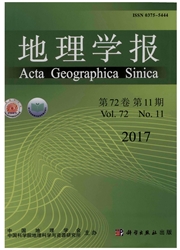

 中文摘要:
中文摘要:
采用模型模拟的方式, 根据中国社会发展规划, 将未来社会经济发展情景与区域气候模型、水资源模型和作物模型相连接, 综合评估和分析未来中国的粮食生产状况, 以期为宏观决策提供科学参考。结果表明, ①气候变化将影响未来三大作物单产, 如果不考虑 CO2 肥效作用, 未来雨养作物单产将受到更大冲击; 当灌溉条件保障后, 水稻受到冲击更大, 单产降低最多, 尤其是 A2 情景。如果考虑 CO2 肥效作用, 未来玉米平均单产变化不大, 小麦单产明显增加, 尤其是雨养小麦, 水稻单产也有所增加。②未来气候变化、水资源、社会经济发展将影响中国三大作物的需水量和农业供水量, 导致水稻、灌溉玉米和小麦的播种面积下降, 而雨养小麦和玉米的播种面积上升。③未来气候变化、 CO2 肥效、水资源和土地利用变化对粮食生产的影响较为复杂, 依情景和时段的不同而不同。农业可用水资源对粮食总产的影响最不利, 致使三大作物粮食总产量明显降低, 成为未来粮食生产的主要限制因素, 尤其是水稻生产; 土地利用对总产的负面影响最小; 气候变化和 CO2 的相互作用可使总量少许增加。未来各情景下水稻受到冲击最大, 而小麦和玉米则表现为不同程度的增产。
 英文摘要:
英文摘要:
An integrated simulation framework was introduced to assess China's future cereal production.The integrated framework includes simulations of climate change,water availability,crop yield and socio-economic characteristics,and their interactions on future cereal productions.The simulations are based on a reasonable socio-economic scenario which is consistent with China's mid-and long-term national development plan.Results demonstrate (1) Climate change will affect cereal yield.Excluding CO2 fertilization effects,yield drops for all cereal crops,with remarkable increases in both instability of production and possibility of lower yield.Irrigation partially offsets the damages caused by climate change.The biggest yield decrease occurs for rice with A2.Including the CO2 fertilization effects,yield increases for most crops,particularly for rainfed wheat,and rice,a small promotion occurs for maize.(2) Cereal's water demand will change in future,along with anticipated irrigation water supply.Interactions of climate change,water availability and socio-economic development result in an unmatched change between water demand and supply.These consequently induce obvious decreases in sown area of irrigated crops or increases in rainfed crops.(3) Interactions of climate change,CO2 effects,water availability and land use change on crop production are complicated,which highly depend on the scenarios and expected periods.The biggest harmful attribution comes from water availability,least from land use change,while the combination of climate change and CO2 may increase crop production.Regarding specific crop,production decreases for rice,but increases for wheat and maize.
 同期刊论文项目
同期刊论文项目
 同项目期刊论文
同项目期刊论文
 期刊信息
期刊信息
